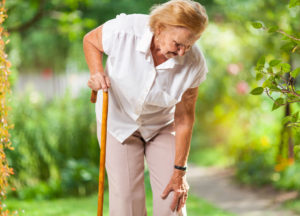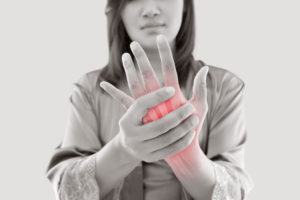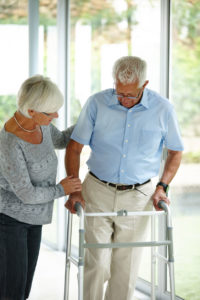Arthritis impacts many residents in Wellington, FL, in ways that are both visible and hidden. For some, sore joints can make a family walk around Lake Wellington a real challenge. For others, swelling or stiffness may slowly chip away at the activities that make life full. Even the simplest tasks, such as opening a jar or typing on a phone, become tough on certain days. Yet, Wellington is full of resources and opportunities to manage arthritis.
With the right approach, you can still enjoy a vibrant and active lifestyle. This guide offers practical tips that work specifically for those living in Wellington with arthritis. You will find insights on daily care, local resources, and ways to feel your best.
Understanding Arthritis in Wellington
Arthritis is not a single disease. It refers to more than 100 joint disorders that cause pain, swelling, and limited motion. The most common kinds are osteoarthritis and rheumatoid arthritis.
Each type affects people in different ways, but all can interrupt daily living. Living in Wellington brings unique factors into the equation. The subtropical climate is often mild, but it can be humid in the summer. Some people with arthritis find that changes in humidity and barometric pressure increase their symptoms.
Physical activity is easier to maintain with Florida’s sunshine. However, protecting yourself from heat and dehydration is important. Local access to healthcare specialists allows for timely help and tailored treatment plans.
1. Seek Expert Medical Care
Choose a trusted provider with experience in arthritis care. Advanced Medical’s Dr. Ishan Gunawardene and nurse practitioner Shariffa Gunawardene are here to help. Their personalized approach ensures treatment matches your specific symptoms and lifestyle needs.
2. Create a Joint-Friendly Daily Routine
Caring for your joints is something that requires consistent action, and your daily routine has a big effect on your joint pain. Here are some things you can do every day to reduce discomfort:
- Try to wake up and go to sleep daily at the same times.
- Gentle stretching each morning reduces stiffness.
- Take breaks if you do chores that require repetitive motions.
3. Stay Physically Active
Exercise may seem hard when joints are sore, but it is one of the best ways to manage arthritis. Moderate physical activity limits pain, boosts mood, and keeps muscles strong. Aim for at least 150 minutes a week of moderate activity. If you are new to exercise, start with five to ten minutes per day and increase slowly. Many people benefit from low-impact ways to stay active. Some of the best forms of exercise include:
- Walking
- Cycling
- Swimming
- Yoga
- Water aerobics
Wellington offers indoor pools and community fitness classes to help people with arthritis. You can also ask your healthcare provider or a physical therapist for specific exercises.
4. Focus on Healthy Eating
What you eat can affect inflammation and joint pain. A diet rich in fruits, vegetables, and whole grains can support health from the inside out. Foods high in omega-3 fatty acids, such as salmon, walnuts, and flaxseeds, have anti-inflammatory effects. Choosing extra virgin olive oil over butter or margarine can also help decrease aches and pains.
Limit processed foods, sugary drinks, and red meats. These can increase inflammation in some people.
5. Manage Stress Effectively
Chronic pain often increases stress, and stress can worsen arthritis. Mindfulness practices, deep breathing, and meditation help lower stress hormones that may trigger flare-ups. Wellington parks and gardens offer peaceful spaces to relax, stretch, or read a book.
Support groups can also reduce anxiety around living with arthritis. Look for arthritis or chronic pain support networks in your area. Talking with others facing similar challenges can make a big difference.
6. Plan for Flare-Ups
Symptoms can get worse with changes in the weather, overexertion, or illness. Make a plan to manage these tough days. Have a list of trusted medications or tools, such as heating pads, wraps, or topical creams, approved by your doctor. On days when movement feels extra hard, focus on gentle stretching rather than avoiding physical activity altogether.
Consider simple household modifications. Grab bars, raised toilet seats, and ergonomic kitchen tools reduce the strain on joints and make everyday tasks easier.
7. Use Wellington’s Health Resources
Wellington is home to many resources that can make living with arthritis manageable. Within Wellington, you can find:
- Physical therapy clinics specializing in arthritis care.
- Swimming pools with warm water and easy access.
- Senior centers with classes tailored for people with joint pain.
- Local pharmacists who can answer questions about medications and supplements.
- Health and wellness workshops covering nutrition, exercise, and coping strategies.
If anything goes wrong, be prepared to go to your trusted primary care physician in Wellington.
8. Engage with Your Community
Staying social is important for mental and physical health. Attend community events to connect with others and prevent isolation. Volunteering, art classes, or joining a book club offer ways to stay engaged without putting excess strain on your joints.
Living Well With Arthritis in Wellington, FL
Arthritis does not have to stop you from living a rewarding life in Wellington. The community is full of resources and support for anyone dealing with joint pain. Focus on medical care, regular movement, healthy eating, stress management, and community engagement. This way, you can manage your symptoms and live well with arthritis in Wellington.
If you need guidance, reach out to Advanced Medical’s Dr. Ishan Gunawardene and nurse practitioner Shariffa Gunawardene. Their experience in arthritis care can make a difference in your daily comfort and long-term health. Call (561) 434-1935 today or use our online appointment request form. A better, more comfortable life is possible.
The top Wellington family practice looks forward to serving you!
Sources:
https://my.clevelandclinic.org/health/diseases/12061-arthritis
https://www.mayoclinic.org/diseases-conditions/arthritis/symptoms-causes/syc-20350772
https://www.mayoclinic.org/diseases-conditions/arthritis/diagnosis-treatment/drc-20350777











